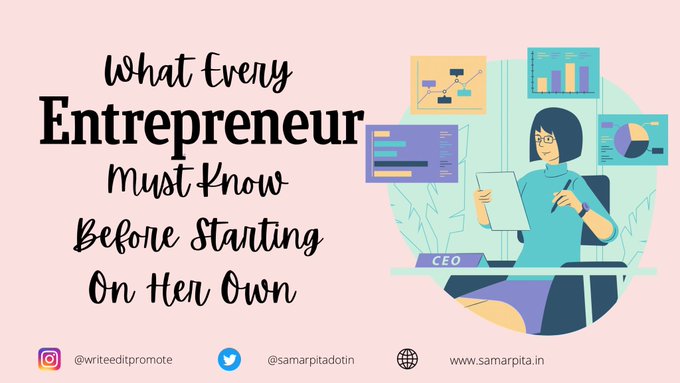In the last decade or so and especially over the last two years since the world got thrown off its course due to the pandemic, there has been a visible surge in people turning to entrepreneurship.
I have been an entrepreneur since 2010, and throughout my journey, I have seen a lot of amazing women start brilliant businesses. While a lot of these businesses flourish, many perish somewhere along the way.
One of the most common reasons is – there is a dearth of knowledge on the dos and don’ts of entrepreneurship amongst a lot of us. In addition to that, we do not know what platforms and opportunities are out there when it comes to the basics of running a business. And as is quite natural, many of us have not planned to be entrepreneurs – entrepreneurship happened to us somewhere in our lives.
Looking at the broader picture, India is home to over 60 million micro, small and medium enterprises (MSMEs), who contribute around 29 percent to the country’s GDP, according to industry estimates. These figures are encouraging. Take into consideration the fact that the digital age has opened up a new growth avenue for these MSMEs, in the form of e-commerce.
For an entrepreneur, this is an exciting time and if you are thinking of taking the plunge, here are a few things you should consider.
1. Solve problems: The idea behind your product or service should not stem from ‘What new can I give to the buyers?’, rather, it should be an answer to ‘Is it solving a problem?’ Only something that has a demand (which will come from need) will need a supply.
For this, you need data-driven insights and being on a seller platform like Flipkart helps immensely. You have real-time data on search trends as well as customer feedback. This helps identify market gaps and new business opportunities for sellers. You would be able to tailor your products to better suit customer needs and in turn make your business more effective.
2. Look for a level playing field: As an entrant in the market, you would take years to build a brand and compete with other established players. Again, e-commerce helps here.
By being a part of a seller platform, where your USP is the value you provide the customer, you would be able to compete in a truly democratic way.
3. Market access and expansion: Look for a platform that helps you reach a pan-India customer base. Quick market expansion will help you scale your business, getting in enough profits to keep your venture running.
4. Cost-effective selling solutions: Early on, look for solutions that help you start and run your business without it being very capital intensive. Warehousing is one large expense that you can avoid by opting to sell through an e-commerce platform like Flipkart. You don’t need to invest in storage space or even set up your supply chain.
The entire cycle from order to delivery to return and exchanges are taken care of by the platform. The entire process is backed by technology, which businesses can manage easily through one facility.
5. Ease of Payments: Online marketplaces provide the perfect solution when it comes to getting payments from customers. The entire process is automated and reliable, with clear redressal mechanisms. This also aligns your business with the government’s initiatives to make India a more digital and cashless economy.
With the rise in #ECommerceInnovation, it has become supremely easy for new entrepreneurs to put their products out there for buyers, reducing the gap between buyers and sellers, and thus increasing sales.
Having a business offline is always great, but in the time, and age we are in when lifestyle is fast and social distancing is still a requirement, a lot of shopping happens online and the number will only keep increasing. Business hours are flexible and one can do it from the comfort of one's own home without compromising on other things in life. The future of women entrepreneurs is bright as a shining sun and the world better put on its sunglasses because #ECommerceInnovation is going to take every small business to unimaginable heights.
 Blurb: Bored roommates use a planchette to contact a legendary ghost that haunts Pune University. Will she answer?
Blurb: Bored roommates use a planchette to contact a legendary ghost that haunts Pune University. Will she answer?

